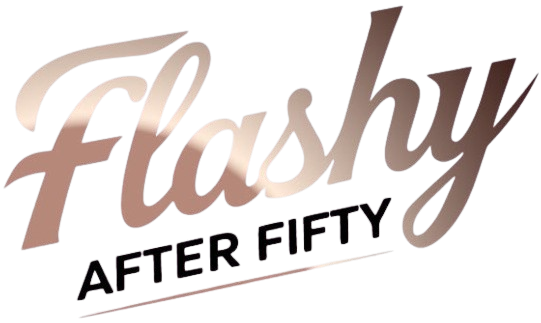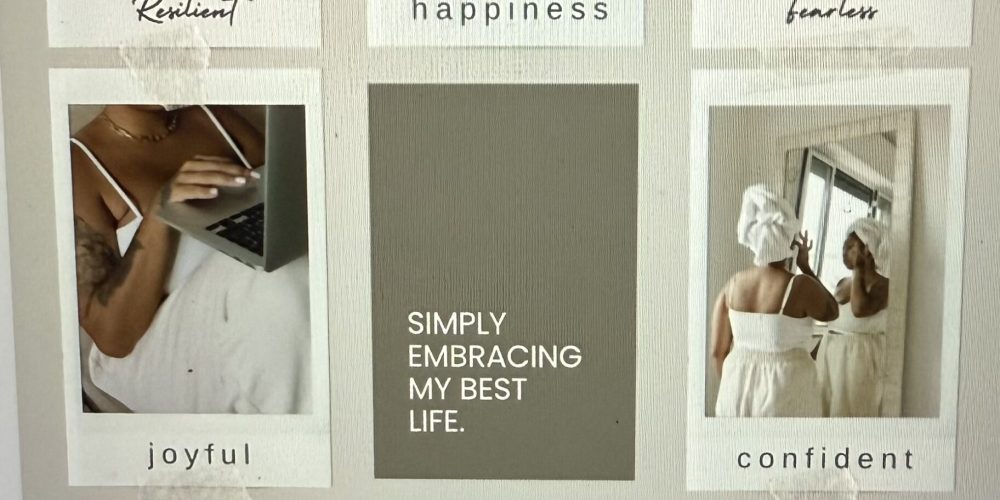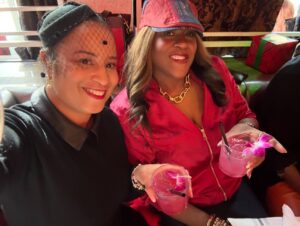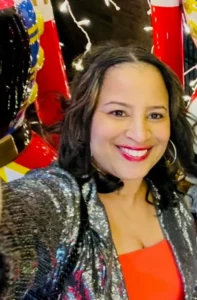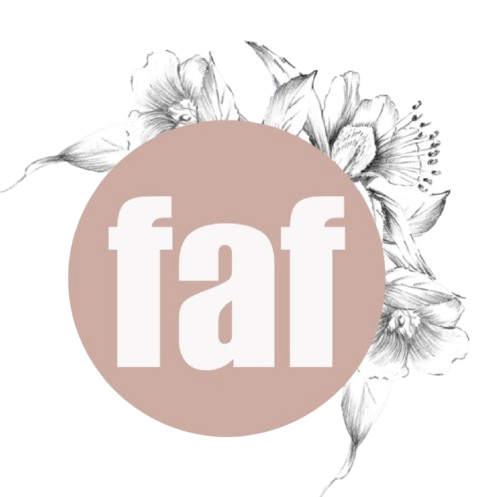This inspiring piece comes from my cousin, Kenya, who has overcome incredible challenges with Bell’s palsy. Her story of recovery, self-care, and her daughter Avery’s support is one that will resonate with many.
When did you first notice something was wrong?
- While brushing my teeth I was unable to rinse my mouth properly.
What were your immediate reactions and feelings when you were diagnosed? - I had just committed to pursuing a career in public speaking and training, but I couldn’t help but wonder
how others could see me as confident when I felt so self-conscious. My speech was often unclear, and my
visual appearance didn’t match the image I hoped to project. I was embarrassed by how I looked and
started avoiding seeing my friends.
What kind of treatments or steps did you take for your recovery? - Acupuncture and physical therapy
What was the hardest part of your journey? - Convincing my mind that this was only temporary.
Challenges and Emotional Impact:
How did Bell’s Palsy affect your confidence or daily life? - Bell’s Palsy had a significant impact on my confidence and daily life. It shook my confidence in ways I
didn’t expect. One day, I woke up and suddenly couldn’t smile or speak the way I was used to. My face felt
numb and uneven, and every time I tried to talk, I could hear how twisted my words sounded. It was hard
to look in the mirror and not feel embarrassed by the changes in my appearance. I had to eat soft foods
for more than a month because I was unable to open my mouth fully and chew.
The physical changes led to a deep sense of embarrassment, causing me to withdraw from social
interactions and avoid people. It was a challenge to maintain my sense of confidence when I felt like my
appearance and abilities didn’t match the leader I aspired to be.
Did you face any misunderstandings from others about the condition? - No
What helped you stay positive during the toughest moments? - My daughter
Physical and Mental Recovery:
Can you talk about the recovery process? How did you manage the physical therapy or exercises needed
for your face? - The recovery process was definitely a test of patience, and honestly, it was one day at a time. Every
morning, I’d look in the mirror and feel defeated because the changes just weren’t happening quickly
enough. Doing the exercises for my face felt exhausting, especially when I didn’t see immediate results.
Some days, it felt like all that effort was for nothing, and I struggled with the frustration of not seeing
progress. But I had to push myself each day—reminding myself that healing takes time even when it’s hard to see. I had to dig deep, tell myself to keep going, and trust that something was
happening behind the scenes, even if I couldn’t see it yet. It wasn’t easy, but I learned that being kind to
myself and sticking With it was the only way forward.
Was there a specific moment when you felt your health improving? - There wasn’t a specific moment when I could say, “I’m better now.” It was more of a constant internal
battle. Each day, I woke up hoping for a Sign that things were improving, but the changes were so slow that
it felt like I was fighting with myself. I’d do my exercises, and follow the routines, but some days I couldn’t
shake the feeling Of frustration and doubt.
I questioned if I was even doing it right, or if I was wasting my time. It was hard not to let the lack of visible
progress make me feel defeated. Every time, I looked in the mirror and didn’t see a drastic change, I had to
remind myself that healing doesn’t happen on a set timeline. The real struggle wasn’t just the physical
challenge—it was the emotional and mental tug-of-war, pushing myself to keep going when all I wanted to
do was give up. The improvement came not in big moments, but in my ability to keep showing up, even
when it felt like nothing was changing.
How did you balance taking care of your body and your mental health during recovery? - Balancing my physical recovery and mental health was one of the hardest parts, but my faith was the
anchor that kept me grounded. On the tough days, when the physical therapy felt exhausting and my body
wasn’t responding the way I wanted, I turned to my faith for strength. I leaned into prayer and scripture,
reminding myself that healing is a process, and I didn’t have to go through it alone.
Advice and Inspiration:
What advice would you give someone who is going through Bell’s Palsy or a similar health challenge?
If you are going through BellS Palsy or any health challenge, I would gently encourage you to be kind to
yourself and give yourself the grace to heal at your own pace. It’s understandable to feel frustrated when
progress seems slow, but remember, healing doesn’t always happen in a straight line. Take comfort in the
small steps forward, even if they feel minor—they all count. Surround yourself with people who can
support you, whether it’s family, friends, or your faith, and remember, it’s okay to lean on others when you
need to. Try to take things one day at a time, and be gentle With yourself on the tougher days. It’s alright to feel upset, but don’t lose sight of the progress you’re making, even if it’s hard to see right away. - Looking Ahead:
- How are you doing now? What’s your daily routine like today?
- Are there any ongoing treatments or exercises that you continue to do?
- What are some of the positive changes you’ve noticed in yourself since the diagnosis?
I’m doing much better now, though I’m still not 100%. There are times when I can still feel the effects of
Bell’S palsy, and that can be frustrating. My daily routine has definitely evolved since my recovery started. I
focus on staying active and practicing mindfulness to keep my body and mind balanced. I also make sure
to do some facial exercises each day to maintain strength and mobility in my muscles. While the intensity
of the exercises has lessened, I still make them a part of my routine.
Even though the challenges were difficult, I’ve noticed a lot of positive changes in myself since my
diagnosis. I’ve become much more patient with myself, learning to embrace the journey rather than rush
the healing process. I’ve also developed a deeper sense Of gratitude for my body and its resilience,
something I didn’t always appreciate before. Mentally, I’ve grown stronger too—learning to navigate difficult
moments with more grace and understanding. I’m more mindful of my emotional health and the
importance of slowing down when needed. But I have to admit, there are times when I still put too much
focus on the problem, rather than celebrating the victories. It’s easy to get caught up in what’s not perfect
and forget how far I’ve come. The whole experience has taught me to listen to myself more deeply, trust
my own strength, and appreciate the small wins along the way. It’s been a process, but I’m proud of the
growth I’ve experienced, both physically and personally.
Check me out at @iamkenyavery
With belief in you,
Kenya Jones
Founder, Kenya Avery LLC
@iamkenyavery
“Do It Afraid.”
